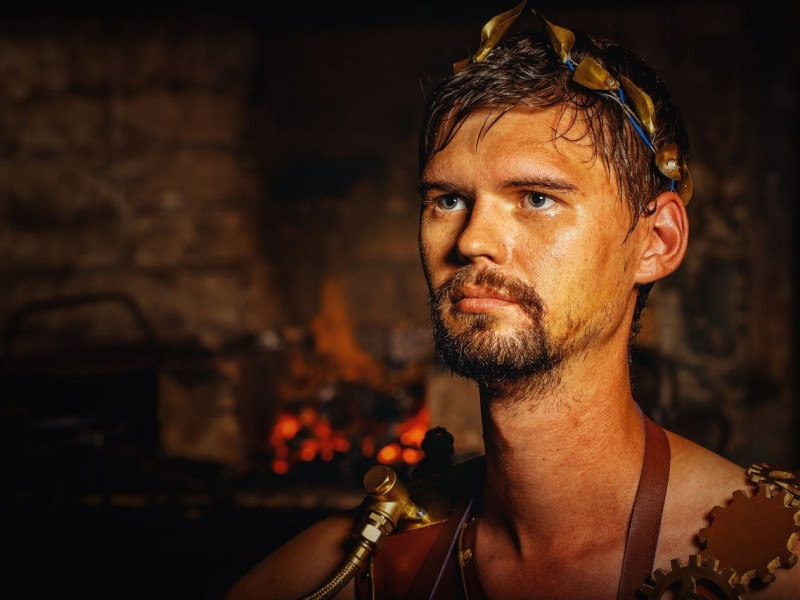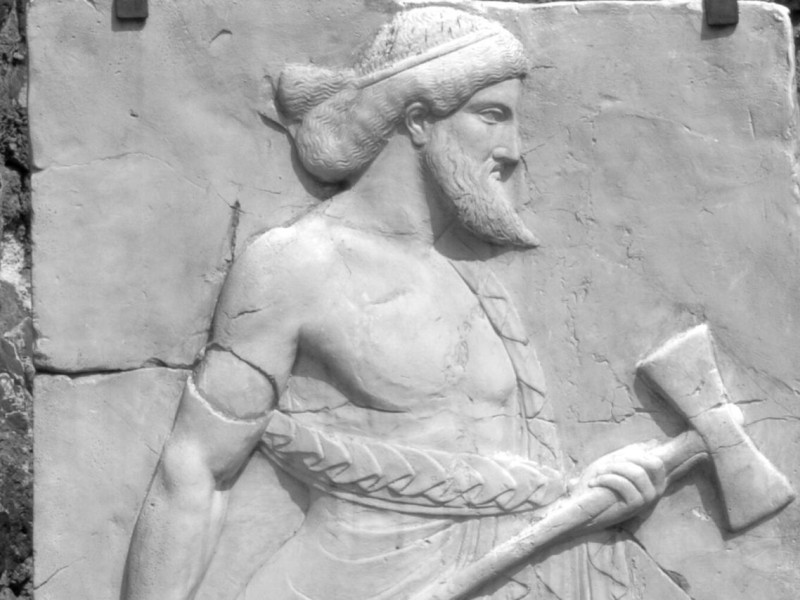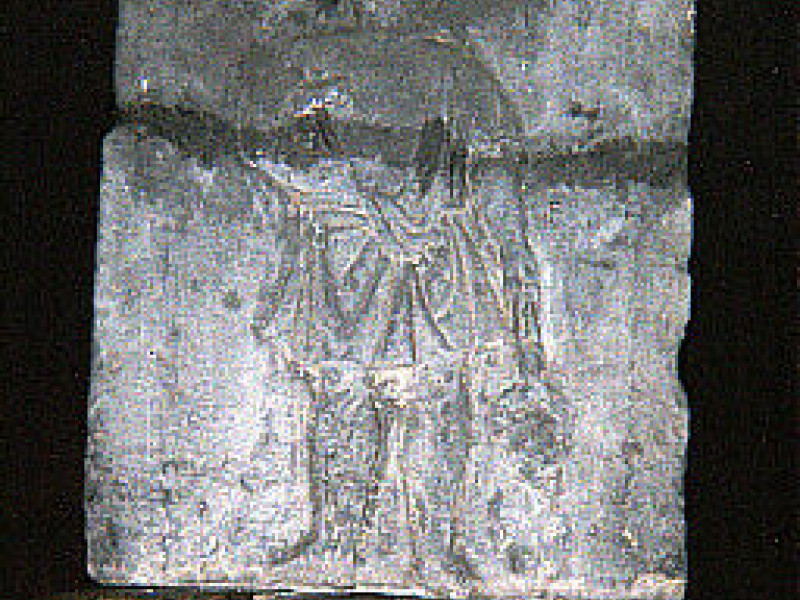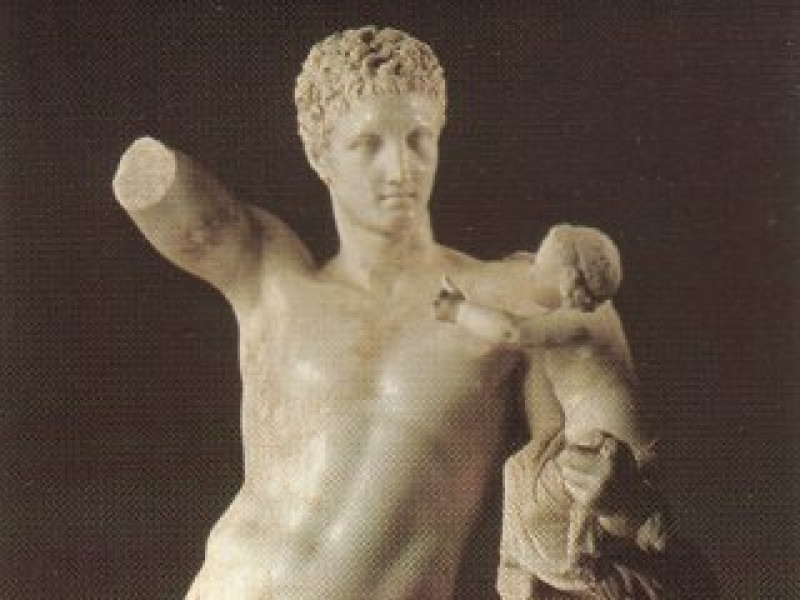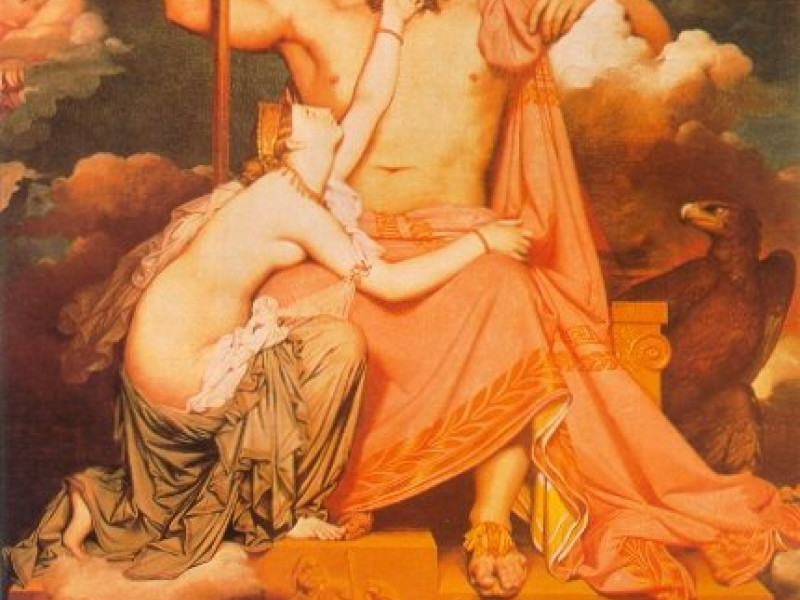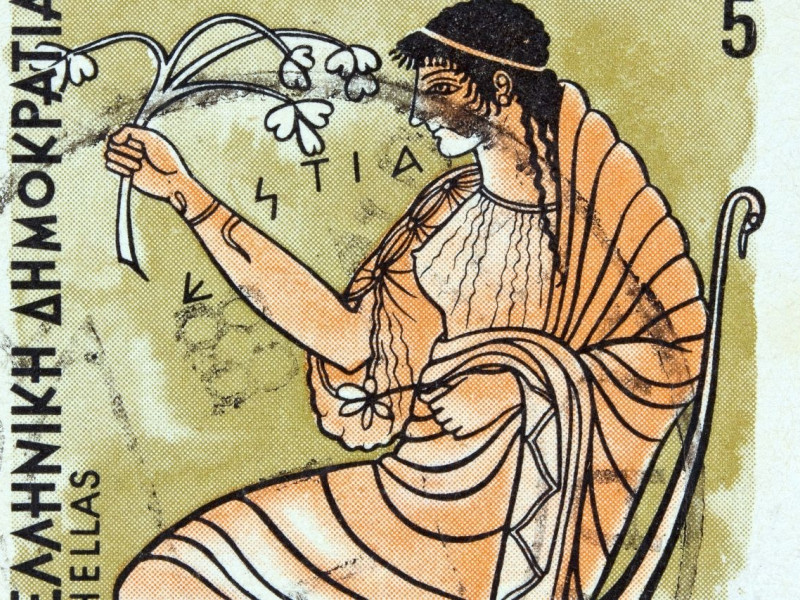Hephaestus (Vulcan)
A god of fire and metalworking. Hephaestus was known to the Romans as the fire-god Vulcan, as well as Mulciber (Gentle Touch).
Some say that Hephaestus was son of Zeus and Hera, but a more popular myth says that he was the son of Hera alone. When Zeus gave birth to Athena without a mother, Hera was jealous and decided to give birth to a child without a father.
There are several accounts as to how he became lame:
One said that Hephaestus was born lame.
Another account was that Hephaestus tried to protect his mother when she angered Zeus, by wrecking Heracles' ship in Cos. It was Zeus who threw Hephaestus out of heaven for aiding Hera. Hephaestus became crippled upon impact with the earth. The sea goddess Thetis saved Hephaestus, which was why he was later willing to make new armour for her son during the Trojan War.
Another popular version said that Hera, upon giving birth to Hephaestus without a mate, found him so ugly that she threw the infant out of Olympus. Hephaestus in anger created a golden throne and sent it to Olympus as a gift to his mother. Once Hera sat on the throne, she was bound to the chair by a golden fetter. The other gods tried to persuade Hephaestus to release his mother. Hephaestus released her either because Dionysus got him drunk or in return for being promised Aphrodite in marriage.
In the Iliad, he is known as husband of Aglaea, the youngest of the Graces, but in the Odyssey, his wife was Aphrodite (Venus) who had numerous affairs, particularly with the war god Ares.
Homer tells an amusing story about how Hephaestus set a trap for his wife and her lover. During Hephaestus' apparent absence, he captured Aphrodite with the war god in a golden net when they were on the bed, naked. Hephaestus then called upon the other gods to witness their embarrassing affair while they were naked and helpless. Many of the Olympians were amused by the adulterers' embarrassment.
Hephaestus refused to release them until Poseidon persuaded him that he himself would pay for their bond and indemnity. Poseidon had a hidden motive for having Aphrodite released, because the Lord of the Sea found himself attracted to the nude Aphrodite. See Love and War Bound.
Hephaestus had once tried to ravish the virgin goddess Athena. His attempt failed, and his semen fell on the ground (Gaea) at the Acropolis. From the earth, an earth-born creature was born named Erichthonius. Erichthonius was a half-man and half-serpent, who would later become one of the earliest kings of Athens. See Athena or the House of Athens for more detail.
Hephaestus may have had another son named Palaemon of Aetolia, who was one of the Argonauts. Others say that Palaemon was the son of Lernus.
As the metal-smith of the gods, he made many pieces of armour and weapons for the gods as well as building their beautiful palaces in Olympus. He also made armour for mortals such as Heracles, Peleus, husband of Thetis, and Achilles, the son of Peleus and Thetis. He made the armour for Achilles at Thetis' request, because she had rescued him when he fell from heaven. Some say that the Cyclops worked under Hephaestus' supervision.
During the Trojan War, he favoured the Greeks. When the river god Scamander tried to drown Achilles, Hephaestus used his fire to dry the river. Scamander quickly submitted to Hephaestus and never helped the Trojans again.
Related Information
Name
Hephaestus, Hephaistos, Ἥφαιστος – "Shining Day" (Greek).
Vulcan (Roman).
Mulciber – "Gentle Touch" (Roman).
Sethlans (Etruscan).
Sources
Homeric Hymns.
The Iliad and the Odyssey were written by Homer.
Theogony and Works and Days were written by Hesiod.
Catalogues of Women and Great Eoiae were possibly written by Hesiod.
The Cypria was work that comes from the Epic Cycle.
Library and Epitome were written by Apollodorus.
Metamorphoses was written by Ovid.
Fabulae and Poetica Astronomica were written by Hyginus.
Prometheus' Bound was written by Aeschylus.
Argonautica was written by Apollonius.
The Aeneid was written by Virgil.
The Golden Ass was written by Apuleius.
There are too many other references to Hephaestus, to be listed here.
By Jimmy Joe

